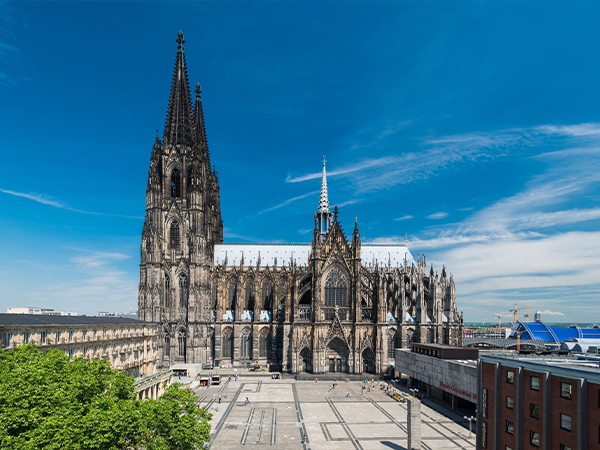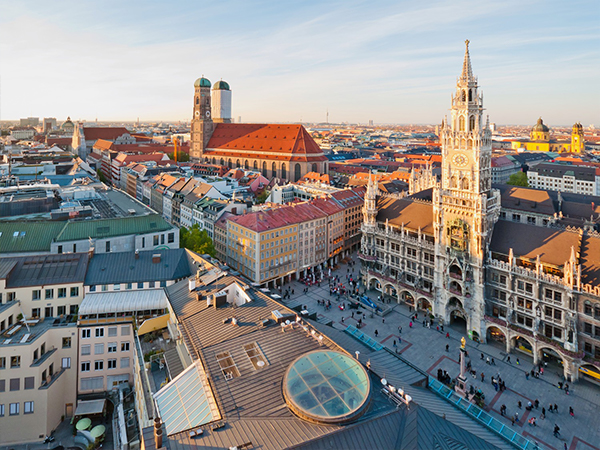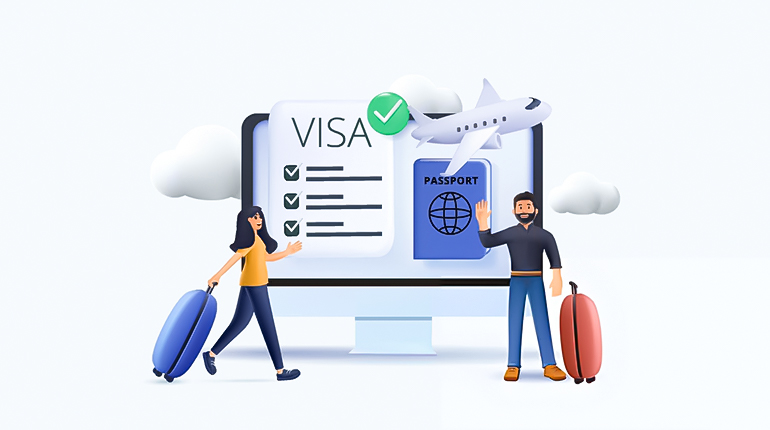- 2/2 Pallabi Main Road, Mirpur 11.5, Dhaka - 1216
Germany Visit Visa
Discover comprehensive immigration guidance from a leading overseas consultancy.
Don't know what to do?
Get Free Counselling
Why choose Visit Visa For Germany?
A Germany visit visa allows travelers to explore one of Europe’s most vibrant and historically rich countries. From iconic landmarks like the Brandenburg Gate and Neuschwanstein Castle to stunning landscapes in the Black Forest and Bavarian Alps, Germany offers a diverse travel experience. Visitors can enjoy world-famous events like Oktoberfest, explore cultural hubs like Berlin and Munich, and indulge in Germany’s renowned cuisine. Additionally, a Schengen visa for Germany provides access to 26 European countries, making it ideal for multi-destination trips. Whether for sightseeing, visiting family, or business meetings, a Germany visit visa ensures a seamless and enriching travel experience.

Top Visiting Spots in Germany










Steps to Study in Germany
What are the Entry Requirements for visit in Germany?
To visit Germany, it’s important to know the entry requirements to ensure a smooth journey. These guidelines verify your eligibility and ensure you meet necessary documentation and health standards. Being prepared with the right documents will help avoid delays during the visa process and at the border. Below are the general requirements for obtaining a visit visa:
- Valid Passport
- Completed Visa Application Form
- Recent Passport-Sized Photos
- Travel Itinerary
- Proof of Financial Means
- Travel Health Insurance
- Purpose of Visit Proof
- Proof of Ties to Home Country
- Visa Fee Payment Receipt
Types of Visit Visas for Germany
Understanding the Different Categories of German Visit Visas
If you’re planning a trip to Germany, you may be wondering which visa category fits your travel purpose. German offers several types of visas depending on your reason for visiting, and it’s important to choose the right one. Below is a breakdown of the most common visa categories to help you decide which one suits your needs:
Tourist Visa – For travelers visiting Germany for sightseeing and leisure.
Family & Friends Visit Visa – For those visiting relatives or friends in Germany.
Medical Treatment Visa – For individuals seeking medical care in Germany.
Cultural, Sports, and Event Visa – For participation in cultural events, sports, or religious activities.
Transit Visa – For travelers passing through Germany to another destination
Official Visit Visa – For government officials or diplomats on short-term visits.
Tourist Visa – For travelers visiting Germany for sightseeing and leisure.
Family & Friends Visit Visa – For those visiting relatives or friends in Germany.
Medical Treatment Visa – For individuals seeking medical care in Germany.
Cultural, Sports, and Event Visa – For participation in cultural events, sports, or religious activities.
Transit Visa – For travelers passing through Germany to another destination
Official Visit Visa – For government officials or diplomats on short-term visits.
Germany Visit Visa Validity and Duration
A holder of a valid German visa can enter Germany during its validity and stay there for the allowed duration after each entry. It’s important to carefully check the number of entries, validity and duration of each stay after your visa is issued to avoid any problems.
Benefits of Germany Visit visa
A visit visa to Germany offers several benefits, including the ability to explore the country’s rich culture, history, and iconic landmarks like the Brandenburg Gate and Neuschwanstein Castle. It provides an excellent opportunity for tourists to experience Germany’s renowned festivals, such as Oktoberfest, and its vibrant cities like Berlin, Munich, and Hamburg. Additionally, a visit visa allows travelers to attend family gatherings, business meetings, or cultural events. With the Schengen visa, visitors can also explore other European countries, making it ideal for multi-country trips. Overall, it offers a flexible and convenient option for short-term stays and tourism in Germany.

Frequently Asked Questions
How long can I stay in Germany with a visit visa?
You can stay up to 90 days within a 180-day period with a Schengen visit visa.
Can I visit other Schengen countries with a Germany visit visa?
Yes, with a Schengen visa issued by Germany, you can travel to other Schengen Area countries for up to 90 days.
Is travel insurance mandatory for a Germany visit visa?
Yes, travel health insurance covering at least €30,000 for medical emergencies, repatriation, and hospital care is mandatory.
How long does it take to process a Germany visit visa?
The processing time is typically 15 calendar days, but it may take longer depending on the embassy’s workload and your specific case.
Can I extend my visit visa in Germany?
Extensions are rarely granted, except in special cases (e.g., medical reasons). It is recommended to apply for the visa with the intended duration of stay in mind.
What documents are required for a Germany visit visa?
You need a valid passport, completed visa application form, proof of financial means, travel itinerary, travel insurance, and a cover letter explaining the purpose of your visit.
Can I travel to Germany with a visit visa for business purposes?
Yes, if your visit is for attending business meetings, conferences, or events, you should apply for a business visa under the visit visa category.
How much is the Germany visit visa fee?
The standard fee for a short-stay Schengen visa is approximately €80, but it can vary depending on the applicant’s nationality and age.
Can I apply for a Germany visit visa while in another country?
Yes, you can apply for a visa from a German consulate or embassy in a third country where you are legally residing.
Do I need to provide an invitation letter for a family visit visa?
Yes, for a family visit, an invitation letter from your relative in Germany is typically required, along with proof of your relationship.